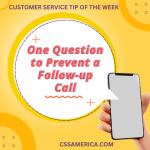Nothing like being in school and getting a report card – that moment of truth when you’ll be smiling or wondering how you’ll subtly get it in front of your parents when they’re in the best mood possible.
Well just like students get report cards, now many schools, colleges, and universities are getting them as well. These report cards are akin to Balanced Scorecards in the rest of the business world, but it’s interesting to note the unique twist that these institutions take in reporting their information. Many elementary schools’ report cards include information on student-to-teacher ratios as well as percentages of teachers who are board certified, and much of this data as well as performance data is listed versus district and state comparatives.
At the 4-year university level, they look at graduation rates, year-to-year retention rates, student loan default rates, student satisfaction scores, measures of student learning, end-of-program assessments, and job placement.
So what can you learn from these educational institutions? From the elementary schools perspective, they offer comparative information. They show how many dedicated resources they have for their students. They note qualifications/experience of their teachers. Do you measure and convey this information to your customers?
From the higher education perspective, they look at retention and loss, they gauge satisfaction, and they analyze impact on the customer. Do you track, measure, and analyze these three key pieces of information?
We all went to school to learn. Let’s take a minute as businesspeople to learn again.
Interested in improving your company’s customer service? See more information at: http://www.cssamerica.com/
Ask Yourself…Am I GREAT at Customer Service? Check out our new customer service book at http://www.amigreatat.com/





















